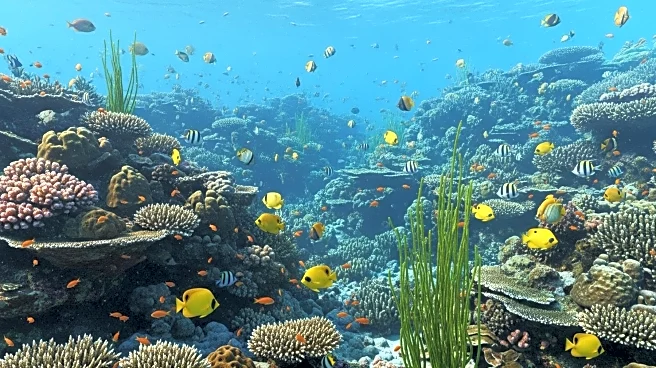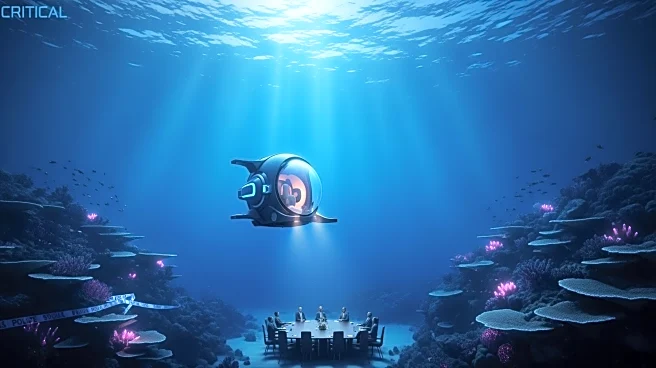What's Happening?
Recent research has highlighted the significant reliance of the global marine aquarium fish trade on wild populations. The study, led by Dr. Bing Lin from the University of Sydney, found that approximately 90% of marine fish sold by major U.S. aquarium e-retailers are sourced from wild populations, primarily from the western Pacific and Indian oceans. This trade, valued at $2.15 billion globally, sees the U.S. as a major consumer, accounting for two-thirds of the demand. The research also revealed that many consumers are unaware of the origins of these fish due to opaque supply chains. Notably, 45 species sold in the U.S. are listed as threatened or in decline by the International Union for the Conservation of Nature.
Why It's Important?
The heavy reliance on wild-caught fish for the aquarium trade poses significant risks to marine biodiversity. Unsustainable harvesting practices can lead to the depletion of wild populations, particularly for species already threatened in their natural habitats. This situation is exacerbated by the lack of transparency in the supply chain, which prevents consumers from making informed choices. The study underscores the need for stronger traceability and oversight, as well as the implementation of credible eco-certification schemes to ensure sustainable sourcing. Such measures could help protect marine ecosystems while maintaining economic opportunities for communities dependent on this trade.
What's Next?
To address these concerns, there is a call for increased consumer awareness and the establishment of eco-certification schemes that can verify the sustainability of fish sourcing. These initiatives would help consumers make informed decisions and support sustainable practices. Additionally, there is a need for better management of wild fisheries to balance economic benefits with conservation efforts. The study suggests that with proper oversight, the trade can continue to provide income for local communities without compromising marine biodiversity.
Beyond the Headlines
The findings of this study highlight broader ethical and environmental implications. The trade in wild-caught aquarium fish not only threatens biodiversity but also raises questions about the welfare of the fish during capture and transport. The arduous journey from reef to retail can be detrimental to the health and survival of these fish. Furthermore, the disruption of social structures in species like anemonefish could have long-term ecological impacts. Addressing these issues requires a concerted effort from stakeholders across the supply chain, including retailers, consumers, and regulatory bodies.











